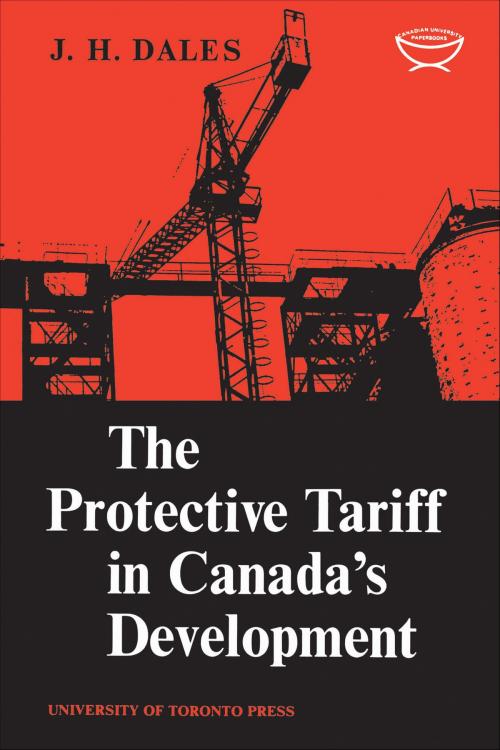The Protective Tariff in Canada's Development
Eight Essays on Trade and Tariff When Factors Move with Special Reference to Canadian Protectionism, 1870-1955
Business & Finance, Economics, Economic Development, Nonfiction, Social & Cultural Studies, Political Science, Politics, Economic Policy, International| Author: | J.H. Dales | ISBN: | 9781442638006 |
| Publisher: | University of Toronto Press, Scholarly Publishing Division | Publication: | December 15, 1966 |
| Imprint: | Language: | English |
| Author: | J.H. Dales |
| ISBN: | 9781442638006 |
| Publisher: | University of Toronto Press, Scholarly Publishing Division |
| Publication: | December 15, 1966 |
| Imprint: | |
| Language: | English |
Canadian historians have always looks favourably on Macdonald's national policies, including the protective tariff. On the other hand, the canons of economic theory have little or nothing to say in favour of protection. Professor Dales attempts in these essays to bridge this gap between trade theory and the standard interpretation of Canadian development.
In the first three essays he is concerned with relaxing the rigorous assumptions of labour and capital immobility that characterize theoretical writings on international trade in order to make them more applicable to Canada, for it must be recognized that large movements of labour and capital both into and out of the country have been one of the most important features of the Canadian economy today. The next three chapters discuss the probable historical effects of Canadian protection in the light of the modified theory. Professor Dales makes statistical comparisons between the economic development of Canada and the United States in order to identify the main differences between the patterns of economic growth in the two countries and to throw light on the large and persistent gap between the Canadian and American standards of living. The last two essays are in the nature of provocative "squibs" designed to break up some of the hard-core conventional wisdom about the Canadian economy.
Although free trade versus protection has long been a dormant issue in policy discussions, it never quite disappears from the scene. Professor Dales persists in thinking that free trade—with all countries and unilaterally if necessary—is the best policy for Canada. The controversial issues raised by these essays are of the highest importance not only to historians and economists but to all in any way concerned with the public policies of this country. The book focuses our attention on a basic antinomy of Canadian life and thought that has been little recognized and by its stimulating analysis will help to form the shape of our continuing "nation-alysis."
Canadian historians have always looks favourably on Macdonald's national policies, including the protective tariff. On the other hand, the canons of economic theory have little or nothing to say in favour of protection. Professor Dales attempts in these essays to bridge this gap between trade theory and the standard interpretation of Canadian development.
In the first three essays he is concerned with relaxing the rigorous assumptions of labour and capital immobility that characterize theoretical writings on international trade in order to make them more applicable to Canada, for it must be recognized that large movements of labour and capital both into and out of the country have been one of the most important features of the Canadian economy today. The next three chapters discuss the probable historical effects of Canadian protection in the light of the modified theory. Professor Dales makes statistical comparisons between the economic development of Canada and the United States in order to identify the main differences between the patterns of economic growth in the two countries and to throw light on the large and persistent gap between the Canadian and American standards of living. The last two essays are in the nature of provocative "squibs" designed to break up some of the hard-core conventional wisdom about the Canadian economy.
Although free trade versus protection has long been a dormant issue in policy discussions, it never quite disappears from the scene. Professor Dales persists in thinking that free trade—with all countries and unilaterally if necessary—is the best policy for Canada. The controversial issues raised by these essays are of the highest importance not only to historians and economists but to all in any way concerned with the public policies of this country. The book focuses our attention on a basic antinomy of Canadian life and thought that has been little recognized and by its stimulating analysis will help to form the shape of our continuing "nation-alysis."















